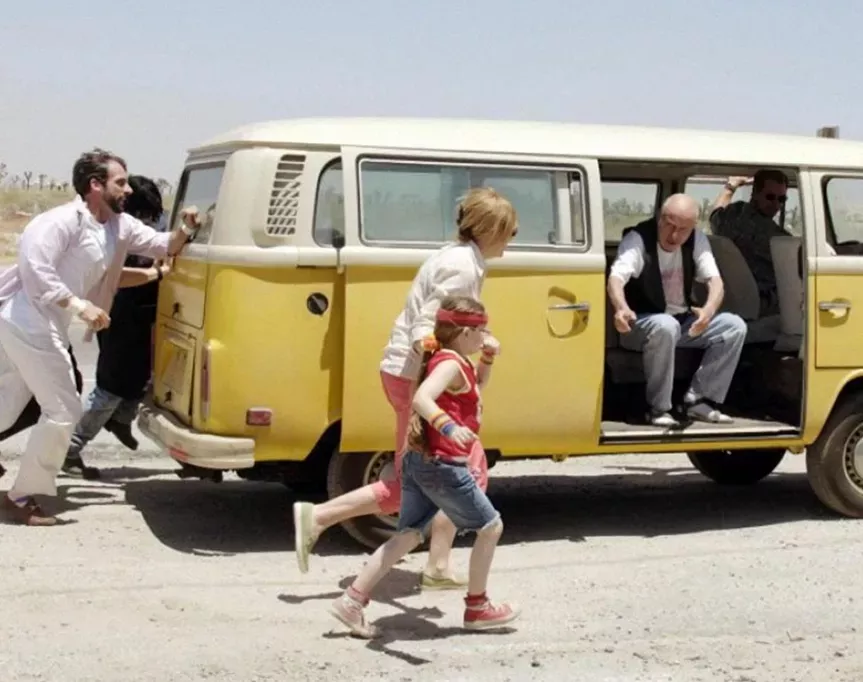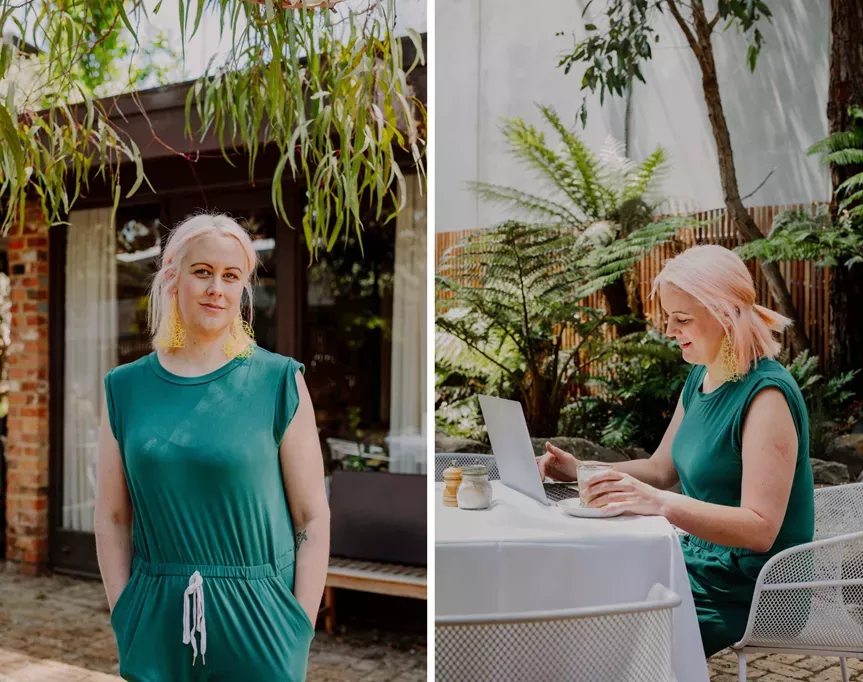how to find your passion
Stuck in a job you hate? Kate Stanton chats with two passionate peeps about how to get your groove back, career-wise.
Is there any career advice more frustrating and nebulous than “do what you love”? What if what you “love” is vegging out on the couch or hanging out with your cat? It’s unlikely you’d find someone to pay you a liveable wage to do exactly that, and even if they did, the fact that it’s your “job” would probably suck the joy out of it (jobs have a tendency to do that). But no one wants to be stuck doing work they absolutely hate, and it’s always fun to try something new (whether it’s through changing careers, picking up a hobby or going back to uni). So, if you are feeling unfulfilled, and have no idea how to “do what you love”, we gathered a few tips to help you get started — and spoke to a couple of folks who’ve figured it out.
DITCH THE IDEA THAT THERE'S ONE "PERFECT" PATH FOR YOU An article titled “how to find your passion” does imply that everyone’s true passion is out there waiting to be discovered, like a soulmate. But that’s limiting and unrealistic, and assumes that people don’t grow and change as they age. Research has found that mindset can really backfire when your supposed “passion” isn’t meeting all your needs. It’s okay to fall in and out of love with what you’re doing, to hate your passion half the time, and to try new things when the old ones aren’t cutting it anymore. It’s actually healthy and productive and normal to be open to challenges and new interests. “I’m not attached to the idea that you have one career,” says Hart Ely-Faulks, a 35-year-old from Melbourne, who recently left his job in higher education to study horticulture at TAFE. “I think study and lifelong learning is incredibly important. It is really healthy to retrain.”
PAY ATTENTION TO WHAT YOU MAKES YOU FEEL GREAT Start by noting how you feel throughout the week, and what you tend to be doing when you feel most at peace, fulfilled or energised. Then, ask yourself why that activity felt so good. Let’s say you really enjoyed knitting a beanie for your nephew: did you love being creative, working on something tactile, or doing something for another person? You don’t have to knit professionally (though wouldn’t that be the dream?), but you could look for opportunities to express your creativity, to be more hands-on, or to help others.
...AND NOT SO GREAT It’s one thing to be annoyed at work, but another for it to affect your mental health. Hart quit his job when he started to feel like a “cog in a machine”. He wanted to make things, and to have a more tactile connection to what he was doing. Trying something new was “terrifying”, he says, but not as scary as staying in a career that was affecting his family (including a new baby). He felt emotionally and mentally tapped out. “It was really getting me down, and starting to affect my ability to be a good dad,” he says. Rachel Suding, a 29-year-old living in San Francisco, worked in human resources for tech companies since she left uni. It was relatively stable and well-paying, but she felt unfulfilled and dissatisfied. “I felt I lacked purpose in my life,” Rachel says. “But when the pandemic hit, I re-evaluated what was important to me… I needed to start prioritising my happiness and fulfilment by doing something that felt more purposeful to me.”
USE YOUR SUPPORT NETWORK Look, we’re not going to tell you to “network”, the most soul-crushing, panic-inducing word in the universe (unless you genuinely love it, you lucky, extroverted duck). You don’t need to slap on a name tag at a happy hour when you can talk to people you already interact with; ask your friends, family, neighbours, your barista or even folks you meet at the dog park about what they do and what they enjoy. Ask if you can try their writing class or shadow them at their museum job for a day. “Even if it's your neighbour's cousin's friend, it always helps to have informational interviews and learn about different career paths,” says Rachel.
DIP YOUR TOES IN FIRST Not everyone has the resources or support to start from scratch. But you can start really, really small, experimenting with things you might like and moving forward when it feels right. Rachel had always fantasised about working in the environmental industry, but wasn’t sure if she had the stamina to leave her desk-based career for something more physically demanding. She started by volunteering as a gardener at a nearby park on weekends. She loved it, and moved to a slightly bigger commitment — a three-month job for a local forestry non-profit. “It was a perfect stepping stone for someone like me with no relevant work experience,” Rachel says. From there, she worked for an environmental consultancy and, eventually, as a conservation management assistant monitoring plants on Mt Tamalpais in the Bay Area. “I learned that while it is hard and scary to make a big life change, it is possible!” Rachel says.
EXPECT YOUR "PASSION" TO BE CHALLENGING, TOO Even if you land on something you love, a new career path or hobby might not tick all the boxes. It might pay you less, or be stressful in ways you didn’t expect. It’s up to you to decide what you’re willing to live with, or whether you have to get paid for your passion at all. Hart, who now works part-time for a landscape design studio while studying, says, “I’m sore and tired in ways I never knew, but it’s rewarding mentally and physically.” “Seeing the entirety of projects and not just contributing one tiny piece is really gratifying,” he adds. “I interact with different people in different spaces daily. So if I am hating something (or someone) on a project, I know it won’t be forever.”



.jpg&q=80&h=682&w=863&c=1&s=1)






.jpg&q=80&w=316&c=1&s=1)

















.jpg&q=80&w=316&c=1&s=1)










